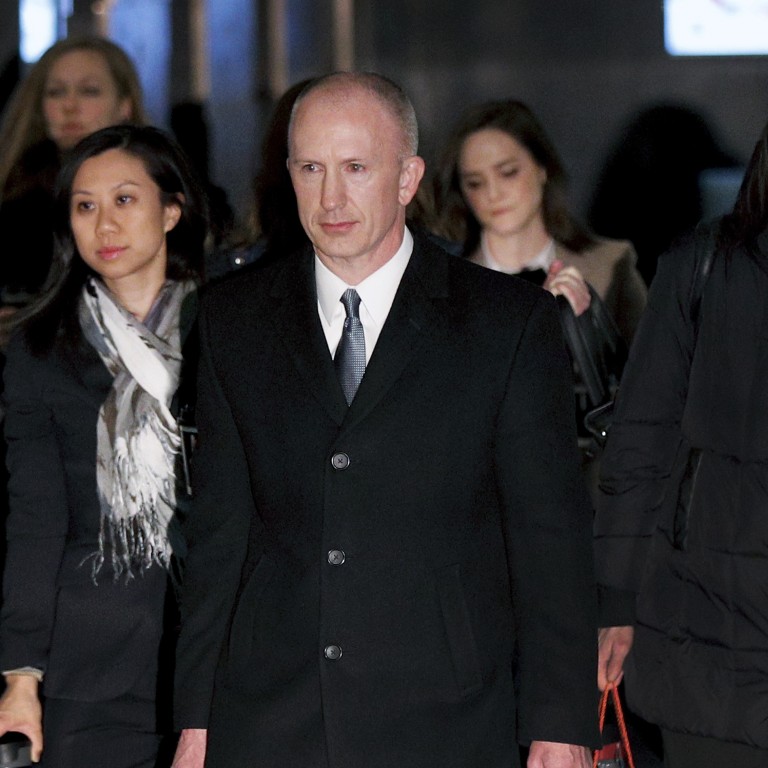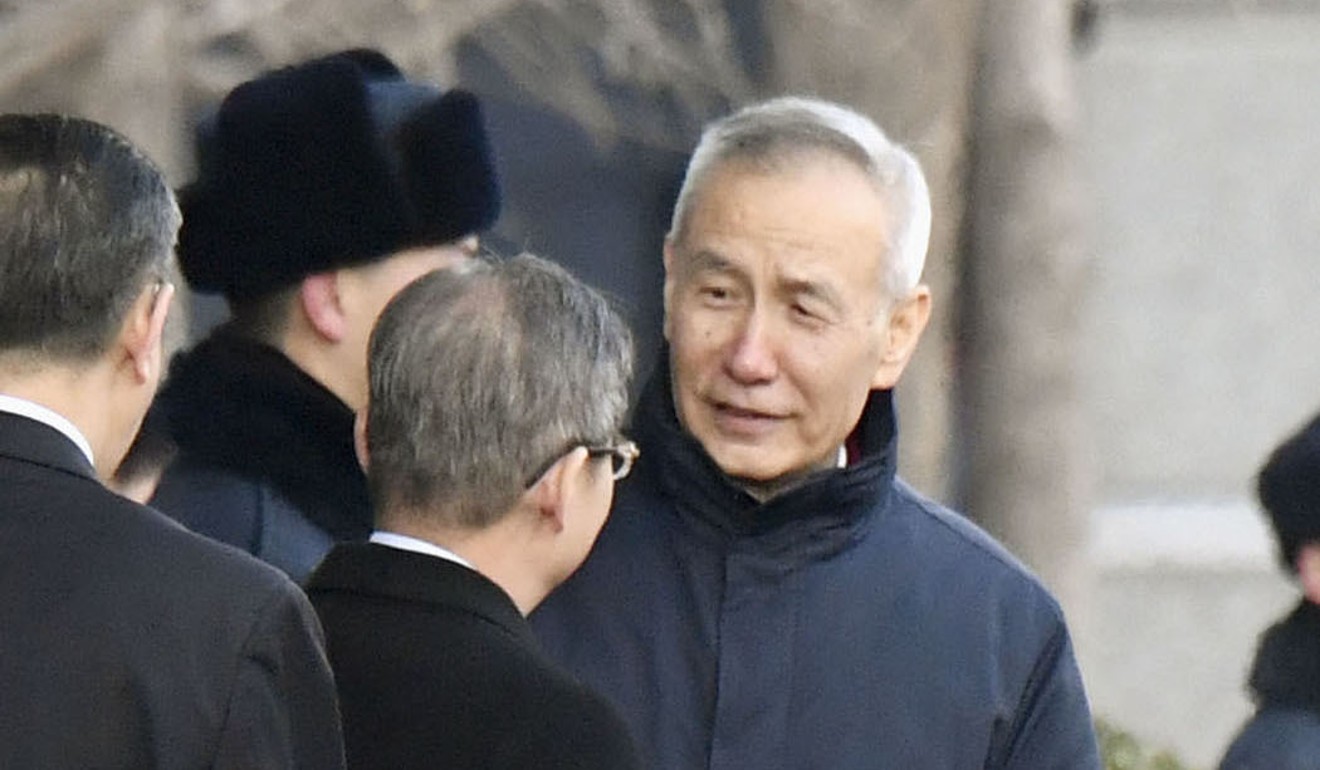
US-China trade war: negotiators give nothing away as talks resume in Beijing
- Talks between vice-minister-level representatives expected to set scene for top-tier meeting later in week
- Analysts remain wary that a comprehensive deal can be reached by the end of the month
The latest round of trade talks between Chinese and US officials got under way in Beijing on Monday, as the March 1 deadline for a deal draws ever closer.
US deputy trade representative Jeffrey Gerrish gave nothing away as he left his hotel in a downtown area of the city, looking stern and dismissing reporters’ questions. He and his team of second-tier officials are expected to set the scene for top-level talks on Thursday and Friday involving the likes of US Trade Representative Robert Lighthizer, US Treasury Secretary Steven Mnuchin and Chinese Vice-Premier Liu He.
US-China trade war: ‘winner takes all’ means both sides lose, envoy says
While both sides were upbeat after earlier talks in Beijing and Washington, hopes of finding a resolution to the dispute took a knock last week when US President Donald Trump said it was “unlikely” he would meet Chinese President Xi Jinping this month, with a face-to-face meeting seen as key to cementing a deal.
Chinese foreign ministry spokeswoman Hua Chunying said on Monday that she hoped the latest negotiations would go well.
“We, of course, hope, and the people of the world want, to see a good result,” she told reporters at a regular press briefing.

Under the terms of the trade war truce agreed by Trump and Xi in December, if a deal is not reached by March 1, the US will deliver on its threat to increase the tariffs it imposed on US$200 billion worth of Chinese goods in September to 25 per cent from 10 per cent.
The two economic giants have been locked in a trade war since July, with Washington’s main complaints being the growing trade imbalance, a lack of intellectual property protection and market access for American firms, cybertheft, forced technology transfers, and Beijing’s subsidies for state-owned enterprises.
‘Still chance of a breakthrough’ in trade war even if Trump does not meet Xi
Despite some progress, White House economic adviser Larry Kudlow told Fox Business earlier that a “pretty sizeable distance” remained between the two sides.
According to a report by The Wall Street Journal, which cited people briefed on the matter, at the last round of talks the Chinese team came up with few new proposals and instead repeated the pledges already made by Xi to open up the economy.
US officials have been pushing for China to adopt deep structural reforms to address their concerns and the latest talks are likely to focus on an enforcement mechanism for any such changes.
Led by Liu, Beijing’s chief trade negotiator, the Chinese team will also include central bank governor Yi Gang, while Lighthizer and Mnuchin will be joined by the undersecretary for international affairs David Malpass, chief agricultural negotiator Gregg Doud, undersecretary for trade and agricultural affairs Ted McKinney, and undersecretary of commerce for international trade Gilbert Kaplan.
Analysts remain wary that a comprehensive deal can be reached by the end of the month.
US trade deficit with China narrows, as effects of export front-loading fade
Sian Fenner, senior Asia economist at the British consultancy Oxford Economics, said the difficulty was that the US wanted Beijing to agree to complex structural and institutional reforms, particularly in the areas of intellectual property protection and industrial policy.
“We think it is likely that the US will again postpone the hike in tariffs from 10 per cent to 25 per cent,” she said.
“We also think that it is now more likely that the two sides will eventually make a deal that would mean a more lasting suspension of new tariffs. That said, we do not think the US will fully remove the spectre of tariff hikes any time soon.”
Aside from the trade dispute, later this week US Senate minority leader Charles Schumer will unveil legislation designed to curtail Chinese exports of fentanyl – a deadly synthetic drug accused of fuelling the opioid crisis in the US – with economic sanctions on those that produce it.
Additional reporting by Agence France-Presse

